Following The Film Stage’s collective top 50 films of 2023, as part of our year-end coverage, our contributors are sharing their personal top 10 lists.
The very act of making a top ten list each year is an absurd yet worthwhile exercise, as frustrating as it is always valuable to reflect on the overall state of cinema in a given year, an art I’ve dedicated much of my adult life to. While I’m about to complain about the process I would be offended if my editors here at The Film Stage didn’t ask me to contribute. As always, thanks Jordan for keeping me around for another year!
For some, life is about the ones that got away––I feel this acutely as I almost passed on Claire Simon’s Our Body, a rewarding documentary with a final scene that nearly broke me emotionally––for the very reason that I didn’t think I had another (nearly) 3-hour documentary in me to watch. Full disclosure I missed this during a brief one-week engagement at my local art house and only caught up with it right after Christmas via a link that I almost did not hit play on. I’m glad I did, but it could have very easily gotten away like so many more.
While Our Body was clearly a 2023 U.S. release and a film that rightfully qualifies for a place on my list, the goalposts for what constitutes a release keep becoming increasingly difficult. This year, more than most, making this list was stressful for two reasons: long running times and the volume of films, including those opening quietly.
This year it felt like more films than usual slid in under the radar before launching formal theatrical runs. The process of “Oscar-qualifying” is nothing new. What’s new after the COVID pandemic is these weeklong runs are happening in unusual ways and in venues that are less visible (speaking from New York) than the AMC Lincoln Square or the Angelika. The Academy’s rules stipulate a week-long run at any theater in New York City or L.A. county counts, leading to distributors NEON and Sideshow to quietly open several titles for a weeklong run at the soon-to-be-demolished Linden Boulevard Multiplex, way out near Brooklyn’s Belt Parkway, out of the sight from the cinephiles that collect mostly in Manhattan and the western parts of Brooklyn. (Full disclosure: Alice Rohrwacher’s La Chimera was one that I could not get to that technically could have qualified for this list.)
So then what really qualifies as a 2023 release and what did I/we miss? Where do 2023 premieres without distribution this year fall into this––what about films that never get U.S. distribution? As you can see, this moral question can easily keep a cinephile or obsessive Letterboxd list-maker up all night.
Perhaps it’s best to focus on trends and the impact of the year. This might be known as the year of expansive running times with some theaters and moviegoers complaining about the lack of an intermission in Martin Scorsese’s Killers of the Flower Moon (running 3 hours and 26 minutes). Fredrick Wiseman also didn’t offer an intermission with his delightful Menus-Plaisirs – Les Troisgros, although the relaxed and almost repetitive nature of the film means, like a long meal with lots of wine, it was fine to duck out for another can of wine at Film Forum or to use the bathroom. Outside of Bollywood, the only long film with an intermission was Steve McQueen’s Occupied City, boasting a running time of 4 hours and 7 minutes, plus a 15-minute intermission.
In a world of TikTok, filmmakers like Simon, Wiseman, and McQueen have made long-form documentaries where immersion is the point. Narrowly missing this list, McQueen’s film is largely an act of cinematic cartography providing a street level of Amsterdam and its breaking point in the early 1940s, finding a new form for the Holocaust documentary. At times, Occupied City feels as if it could have also been a gallery installation, although that would diminish the quiet power it builds over the long duration, being a captive audience in a cinema. Could it have been a minute or two or even an hour shorter? I wouldn’t immediately disagree with you if you made the case.
It has also been a bold, rich year for longer-duration narrative cinema, with films like Christopher Nolan’s operatic and timely masterpiece Oppenheimer to compact dramas like the excellent The Plains, which showcases the quiet life of a commuter as he navigates elder care and informally mentoring a young colleague he drives to work. As Scorsese postures, people spend hours in a single sitting playing video games. Why can’t they focus on a film for that long? Of course, just last year Film Twitter, including curators like TIFF’s Cameron Bailey, shared favorite short feature lists inspired by Pete Davidson’s viral and hilarious rap song heralding the enjoyment of a “Short Ass Movie.” What a difference a year makes!
So here goes it: a top ten list that consists of the best of about 500 feature films I’ve seen this year, and those that I think qualify as 2023 releases.
Honorable mentions: All Dirt Roads Taste of Salt, American Fiction, Beau Is Afraid, Beyond Utopia, BlackBerry, The Holdovers, Maestro, Occupied City, and The Zone of Interest.
10. Origin (Ava DuVernay)
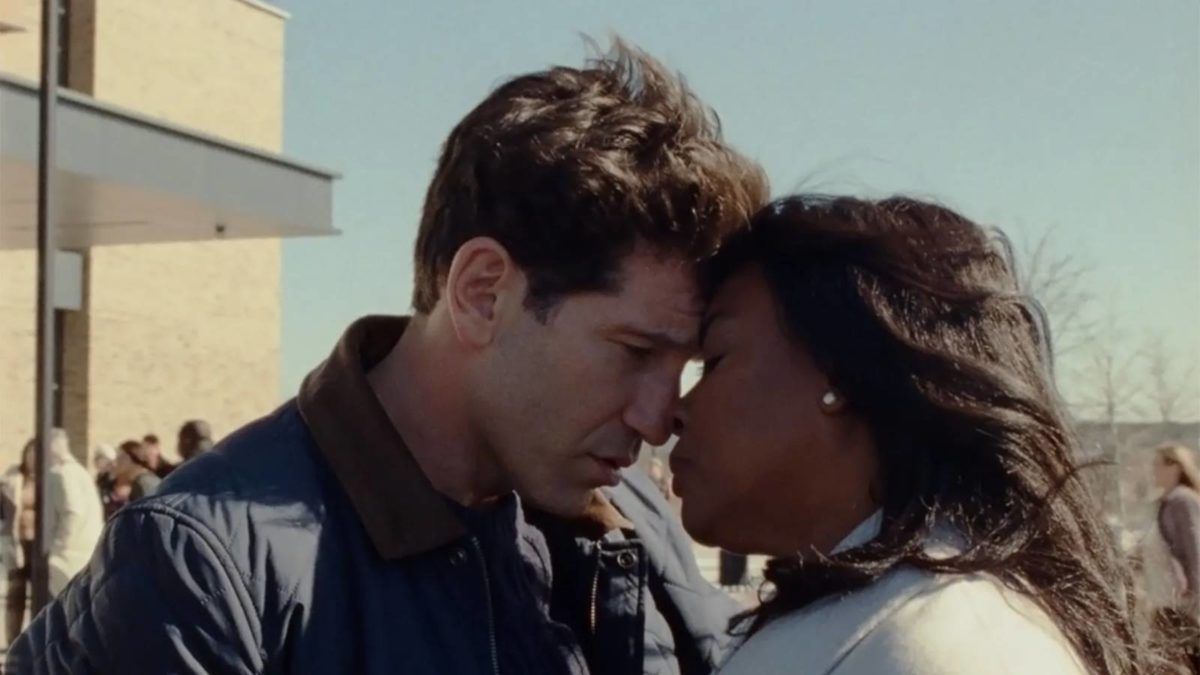
Rather than adapt Isabel Wilkerson’s best-selling book “Caste: The Origins of Our Discontents” into a documentary, Ava DuVernay has chosen to create a narrative account of Wilkerson’s experience traveling the globe to write her 2020 best seller with somewhat mixed results. Origin is a vital film, perhaps one of the most ambitious of the year, despite a few narrative missteps (Nick Offerman’s brief cameo as a MAGA plumber, the first time Aunjanue Ellis-Taylor’s Wilkerson meets her husband, played by Jon Bernthal). The film more than makes up for its more on-the-nose passages later as the thesis comes into captivating focus creating a deeply absorbing narrative that attempts to map the origins of racial inequity and injustice from India, Nazi Germany, and the deep and “new” South. An excellent companion film to Llewellyn Smith, Sam Pollard, and Charles M. Blow’s HBO documentary South to Black Power, Origin is a film exploring the roots of oppression that also offers solutions.
9. Every Body (Julie Cohen)

Floating under the radar amongst great documentaries this year, Julie Cohen’s Every Body is an informative exploration of the lives of intersex people, often having to choose between a binary gender rather than being permitted to figure that out on their own. Synthesizing a subject that is largely misunderstood via three charismatic participants in Sean Saifa Wall, River Gallo, and recent “Inverse Cowgirl” author Alicia Roth Weigel, the film captures advocates hoping to create an understanding in the medical and political community. Every Body is a film that heroically demystifies gender binaries often the subject of cruel jokes.
8. All of Us Strangers (Andrew Haigh)
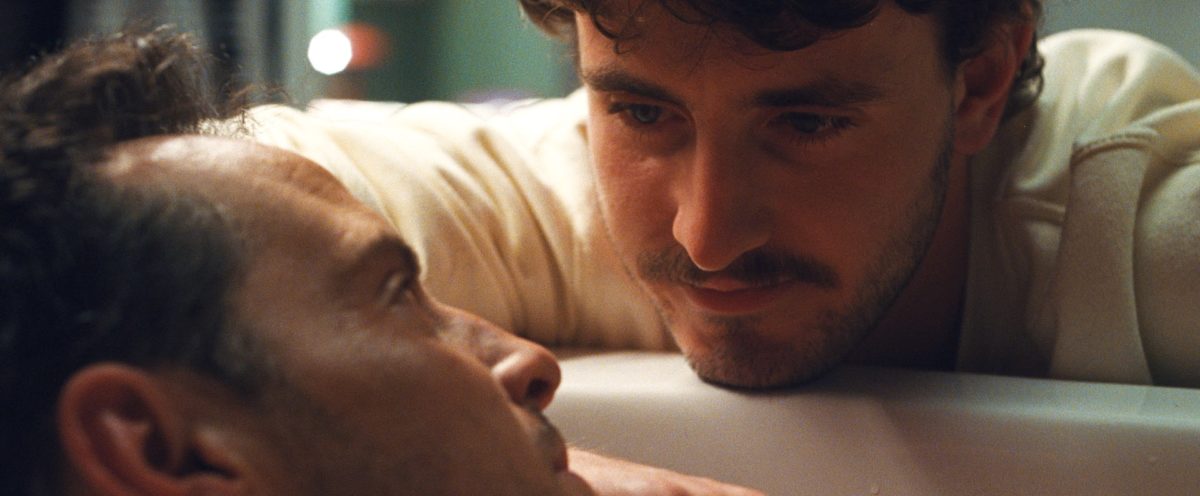
Despite a few missteps, All of Us Strangers evokes Andrew Haigh’s breakthrough feature Weekend (as well as that of Charlotte Wells’ Aftersun, also starring Paul Mescal). Haigh has crafted an evocative fantasy, the entire film is as lucid as its conclusion is heartbreaking. Beginning with the evacuation of an empty apartment building due to a frequent fire alarm, the film sets a masterful dream-like tone as Andrew Scott’s Adam processes the trauma he felt as a boy while starting a relationship with Mescal’s Harry.
7. Our Body (Claire Simon)
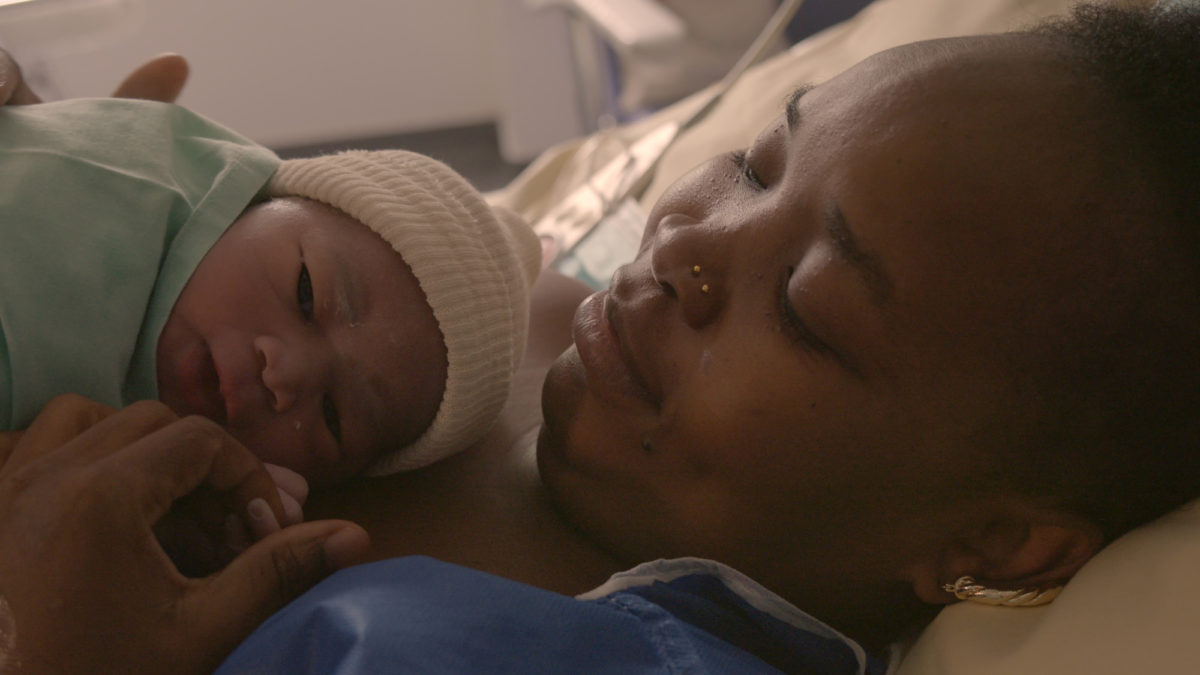
A film that (male) politicians should see before introducing or voting on laws surrounding issues of gender, identity, and female reproduction, Claire Simon’s personal institutional study spends nearly three hours with the doctors and patients (including Simon) in a gynecology ward in Paris. Our Body is a portrait of compassionate providers and their patients that makes for an easy comparison to the work of Frederick Wiseman. Simon, unlike Wiseman, provides a frame for the material, herself a cancer survivor who received treatment from the hospital chronicled. Throughout the sprawling film, we spend time with patients seeking a variety of treatments from those delivering children, hoping to have children, hoping to beat cancer, or are individuals transiting seeking compassionate care. Our Body, like Julie Cohen’s Every Body is an illuminating documentary that brings care and important issues out into the open with great candor, including subjects agreeing to participate in the project with the hopes their experience may help others.
7. Menus-Plaisirs – Les Troisgros (Fredrick Wiseman)
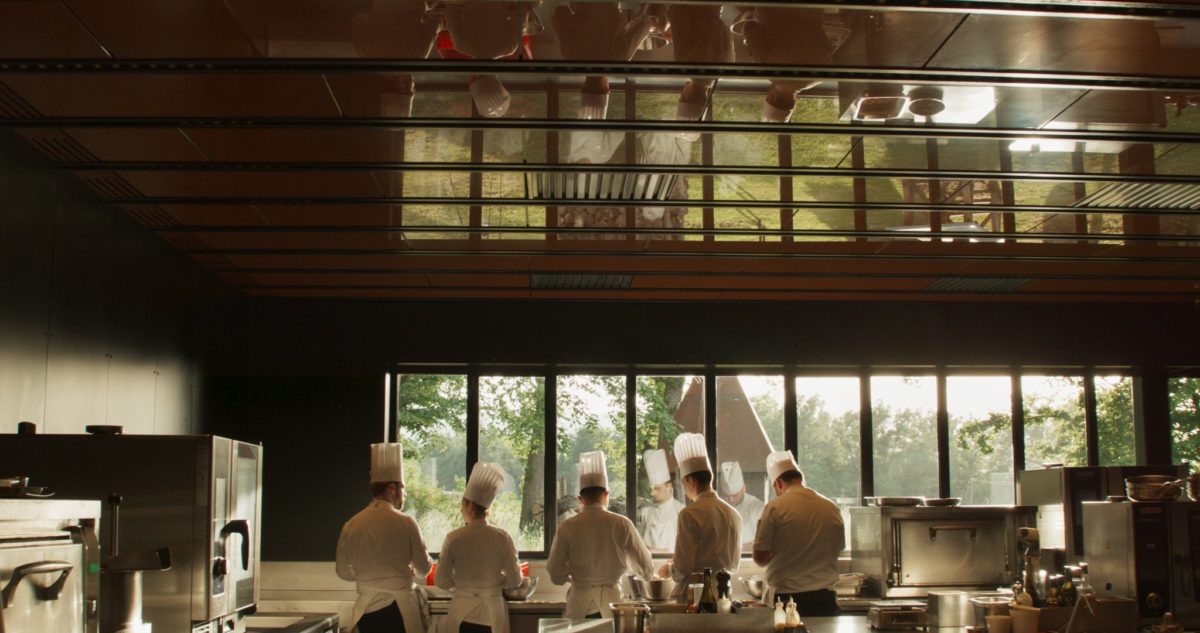
Part of the alchemy of Fredrick Wiseman’s four-hour feast Menus-Plaisirs – Les Troisgros is that the necessary context and history of the family-owned Les Troisgros hospitality group isn’t quite known until the film is well into its third hour. A fascinating exploration of a three-star Michelin restaurant quite literally from farm to table, it explores the theatrics of the experience as well as the group’s supply chain. Wiseman, known as the poet of the staff meeting, captures the artistry of the group’s chefs, sommeliers, and suppliers in a decadent feast. Like a meal at Les Troisgros’ restaurants (and even their food truck) it’s a slow but meticulously crafted, immersive affair.
6. Killers of the Flower Moon (Martin Scorsese)
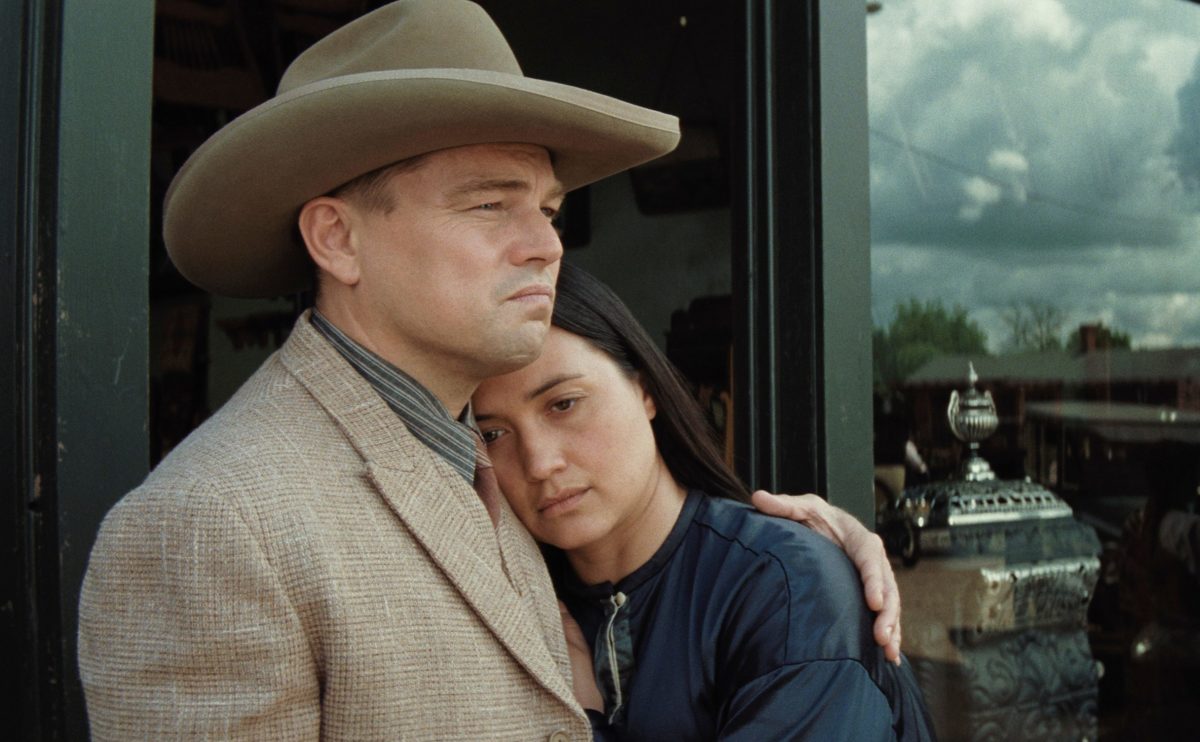
An impeccably crafted epic from one of our masters, Martin Scorsese’s Killers of the Flower Moon is another stroke of cinematic genus and a re-framing of David Grann’s best-selling non-fiction book to focus on the trauma of the Osage tribe. The film is a sweeping and handsomely conceived thriller featuring top-notch performances by Lily Gladstone and Leonardo DiCaprio. While refocusing the original material away from the FBI investigation, giving it a much-needed refresh, Scorsese has simultaneously married his themes of organized crime, faith, and family together in an engaging drama.
5. Anatomy of a Fall (Justin Trier)
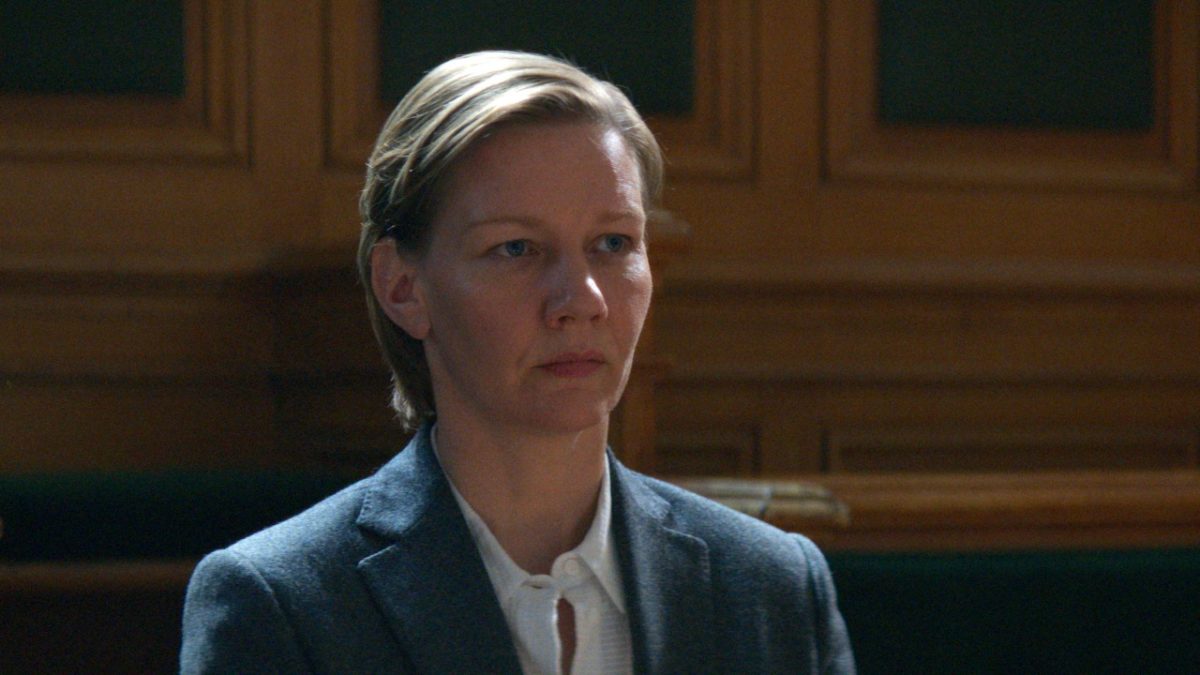
An icy procedural that examines both the anatomy of a marriage and the potential crime at the core of the movie (distributor NEON cheekily opened the film with a voting website to ask if you thought Sandra Huller’s Sandra Voyter was guilty). Winner of the Palme d’Or at Cannes this year, Anatomy of a Fall is one of the year’s best films, peeling back the layers of a marriage between two creatives gone horrible wrong and a son (played by Milo Machado Graner) stuck in the middle attempting to emotionally navigate what his mother is being accused in what is the cinematic trial of the year.
4. The Boy and the Heron (Hayao Miyazaki)
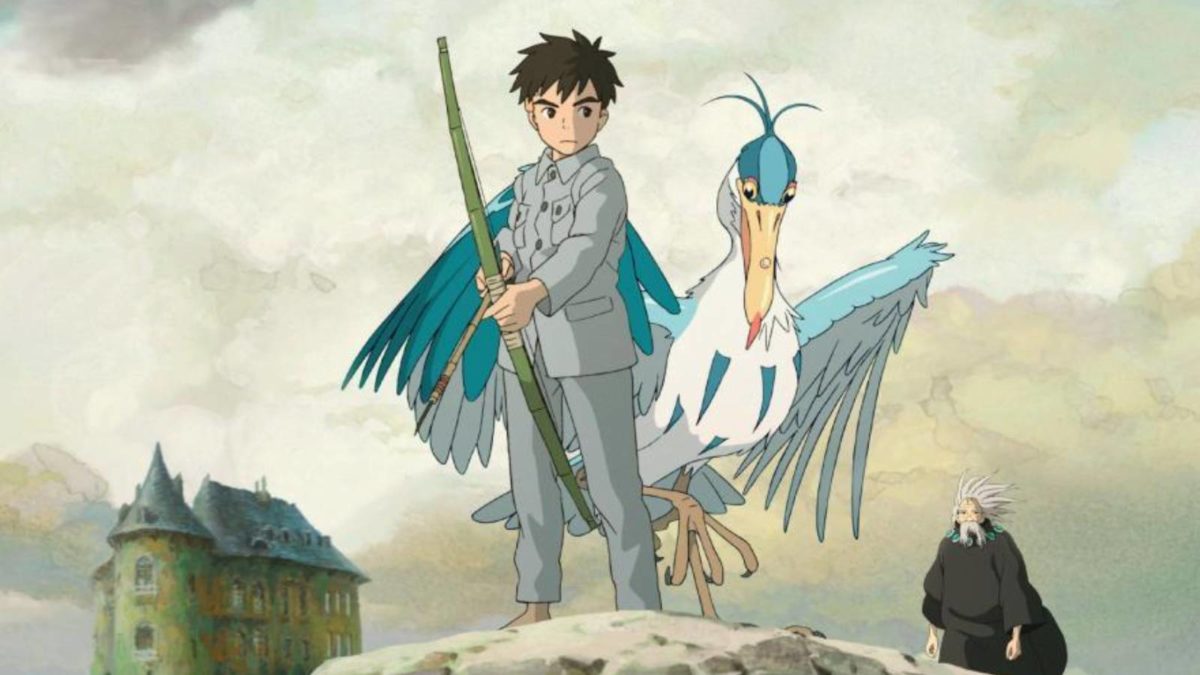
Another beautiful film from the great Hayao Miyazaki, The Boy and the Heron is an eccentric exploration of grieving as Mahito (voiced by Soma Santoki) follows a grey talking heron (voiced by Masaki Suda) on an adventure to find his mother in an alternative universe. Imaginative and emotional, it’s a new classic.
3. Afire (Christian Petzold)
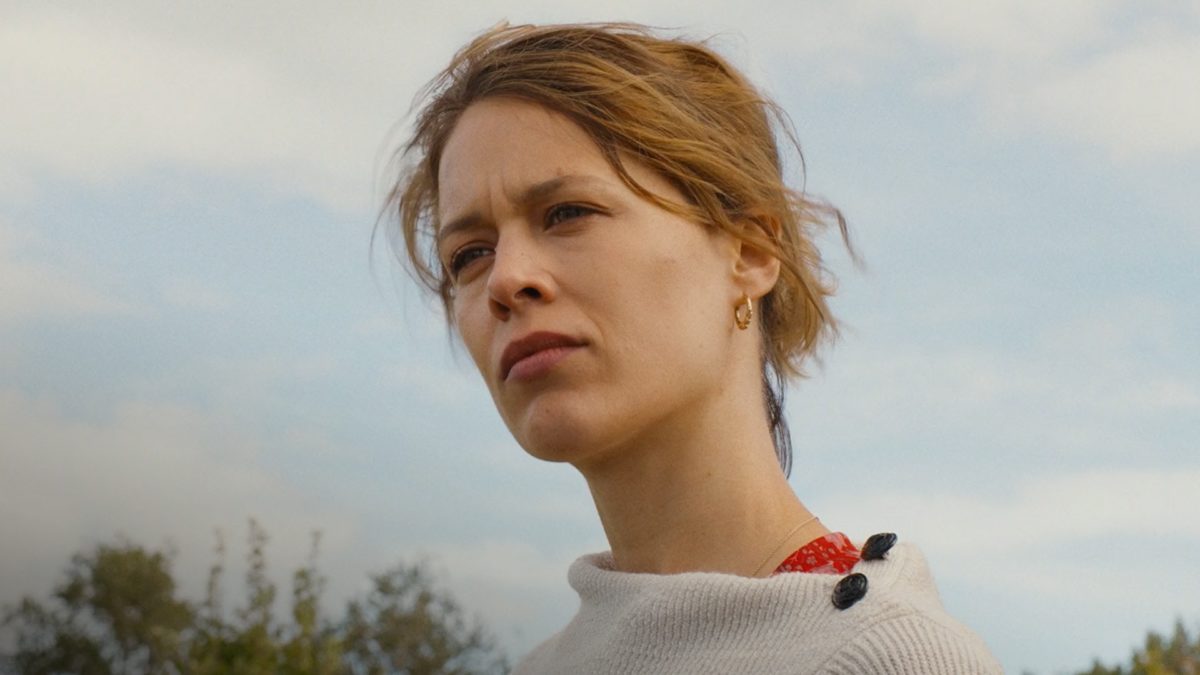
A simmer becomes a full-on blaze in Christian Petzold’s haunting web of jealousy and desire. Reminiscent of the early works of François Ozon, Afire stars Thomas Schubert and Langston Uibel as “friends” Leon and Felix, respectively, who find themselves at a family holiday home near a beach resort occupied by renter and seasonal worker Nadja (Petzold alum Paula Beer). Things start to take an unexpected turn as the atmosphere fires up due to an impending environmental disaster––and one at home when Felix finds himself drawn to Najda’s bisexual lover Devid (Enno Trebs). With its nuanced performances as professional tensions and desire come to a full-on boil, the thrilling emotional roller coaster is perhaps Petzold’s best.
2. Past Lives (Celine Song)

We begin with a simple premise that two screenwriting students might engage in: looking across the bar and trying to ascribe a narrative to people sitting and talking. In this case, it’s Nora (Greta Lee), her childhood love Hae Sung (Teo Woo), and her husband Arthur (John Magaro), the lattermost who sits quietly while the former two connect. Past Lives is a film about fundamentally good people at their core navigating decades of emotional baggage as Lee’s Nora still retains a piece of a South Korean identity she left behind at age 12 for Canada. A playwright (like writer/director Celine Song) she initially connects with Hae Sung over Skype and social media before losing touch once she meets and falls for her future husband Arthur. With a lucid structure that evokes a dream, Past Lives is a bold and exciting debut feature that’s flawlessly acted and beautifully composed by cinematographer Shabier Kirchner, making the interior life of Nora epic in scale. Song’s debut is a treasure. Nicole Kidman was right: somehow heartbreak feels good in a place like this.
1. Oppenheimer (Christopher Nolan)
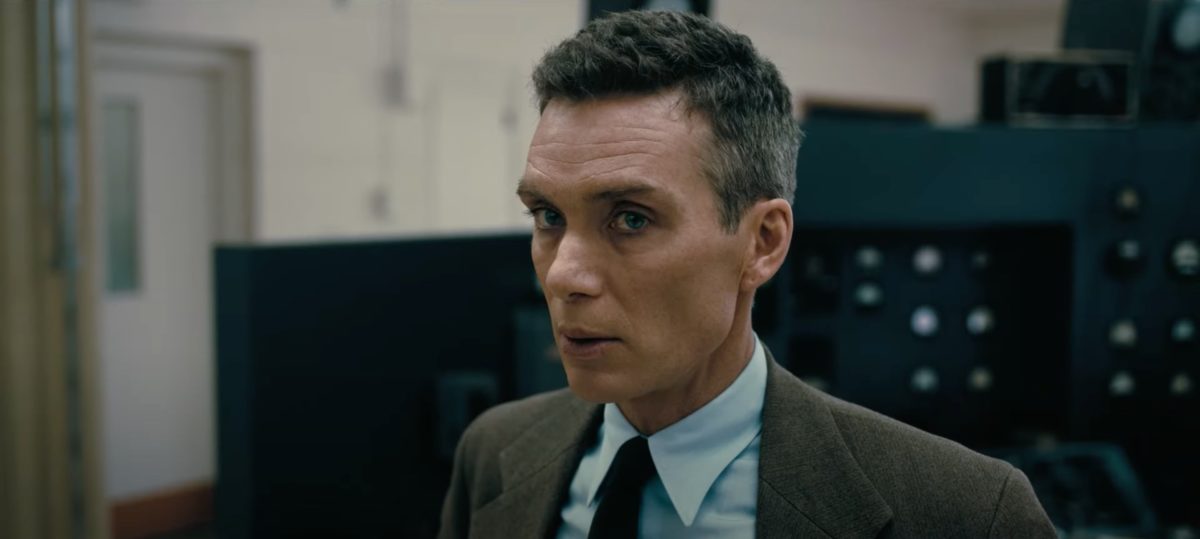
A film as timely as it is timeless, the brilliance of Christopher Nolan’s Oppenheimer might have gotten lost as a cultural phenomenon this summer but it remains a towering cinematic achievement. Revisiting the film on 70mm film in New York City’s giant AMC Lincoln Square IMAX screen in November was a different experience than seeing the film on opening (Barbenheimer) night and a much more satisfying one. Ripe with moral complexity, Nolan utilizes a three-hour running time and practical effects to create a complete picture of the man, the project, and the aftermath, keeping the story grounded on a human level despite the tremendous stakes.
Nolan has assembled an incredible cast including Cillian Murphy, Emily Blunt, Matt Damon, Robert Downey Jr., Florence Pugh, Casey Affleck, Kenneth Branagh, Benny Safdie, Jason Clarke, and many more taking what could have been dry material and creating a film that proceeds at a nearly breakneck pace, jumping between Oppenheimer’s early academic career, affiliations with various political parties, the development of the bomb at Los Alamos, and the fallout of congressional investigations. A contemporary history lesson that feels relevant to the current political landscape, Oppenheimer is an instant classic.
